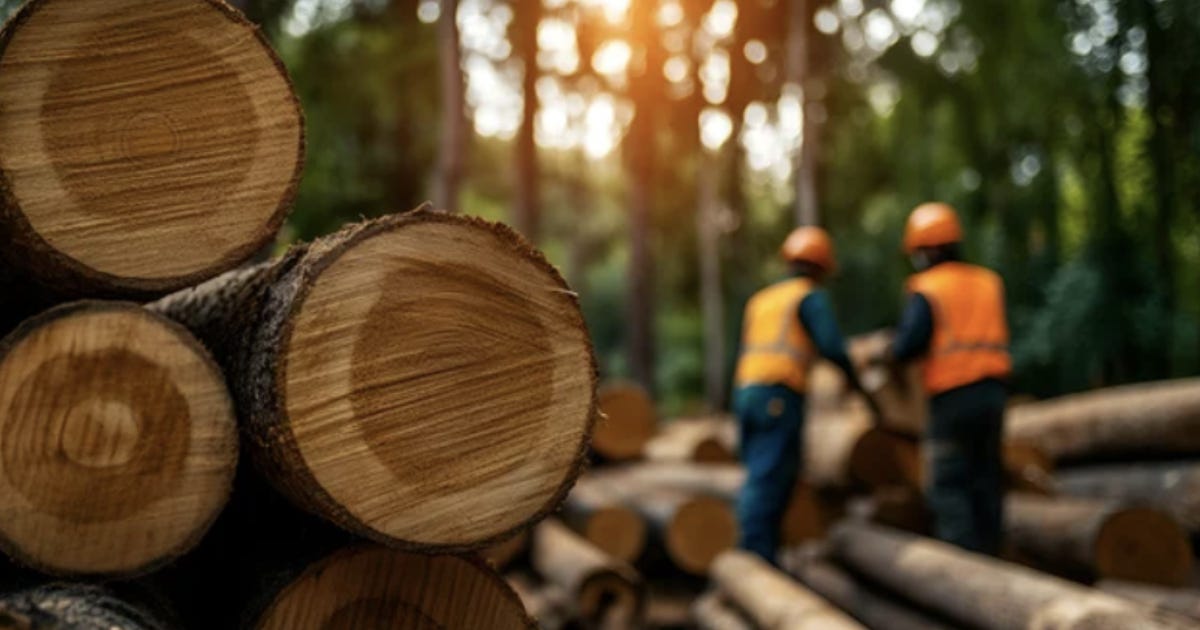Hundreds of forestry workers to lose jobs as B.C. mills fall to U.S. tariffs
Hundreds of British Columbia forestry workers are about to lose their jobs as two more softwood lumber mills shut down, victims of the ongoing Canada-U.S. trade war.
Hundreds of British Columbia forestry workers are about to lose their jobs as two more softwood lumber mills shut down, victims of the ongoing Canada-U.S. trade war.
West Fraser Timber Co. announced Friday its lumber mill in 100 Mile House will shut down before the end of the year “following an orderly wind-down” due to timber supply challenges and soft lumber markets.
“Challenging softwood lumber demand, higher duties and additional tariffs have compounded this situation. The mill closure will impact approximately 165 employees at the site and reduce West Fraser’s capacity by 160 million board feet,” the company said in a statement on Thursday.
“The closure of the Augusta lumber mill is a result of challenging lumber demand, and the loss of economically viable residual outlets, which combined has compromised the mill’s long-term viability. The closure will impact approximately 130 employees at the site and reduce West Fraser’s capacity by 140 million board feet.”
West Fraser plans to mitigate the impact on affected employees by providing work opportunities at other company operations “where available.”
Additionally, West Fraser’s “curtailment” of its facilities in Huttig, Arkansas and Lake Butler, Florida from last year will now be permanent. The mills will be dismantled and the property sold.
Conservative Leader Pierre Poilievre called on Prime Minister Mark Carney to eliminate U.S. tariffs on softwood lumber last month.
The U.S. Commerce Department increased anti-dumping duties on Canadian softwood lumber to 20.56 per cent in July, citing Canadian Crown land harvesting fees as an unfair government subsidy.
The B.C. government responded by urging the Carney government to prioritize the softwood lumber industry in its trade negotiations with the Trump administration.
Canada and the United States have not had a softwood lumber deal since 2015, with B.C. exporters paying duties of 14.4 per cent. The preliminary combined rate on Canadian softwood lumber was reported to be 34.45 per cent in April. However, the U.S. Commerce Department’s latest decision was its final determination.
According to the B.C. Lumber Trade Council, if the U.S. department’s pending review on countervailing duties aligns with its preliminary results, the combined rate against Canadian softwood shipped to the United States will exceed 30 per cent.
“These duties are both unjustified and harmful. They unfairly penalize forestry workers and families across British Columbia, while further increasing costs for American homebuilders and consumers,” said the council’s president Kurt Niquidet at the time.
“Rather than prolonging this decades-old dispute through costly litigation, we urge both governments to pursue a fair and durable agreement that delivers long-term certainty in the softwood lumber trade.”
The U.S. is the single largest market for B.C. lumber, accounting for more than half of the province’s exports for years.
West Fraser Timber’s announcement follows a number of B.C. forestry mills that have closed in recent years, while the U.S. has seen a number of new mills open.




See Wyatt Claypool for the real explanation for what has happened in BC.
NDP policies are killing the softwood lumber industry, not US tariffs.
Maybe the NDP government could have the people losing their jobs in forestry to building an oil pipeline from Alberta to Kitamaat?